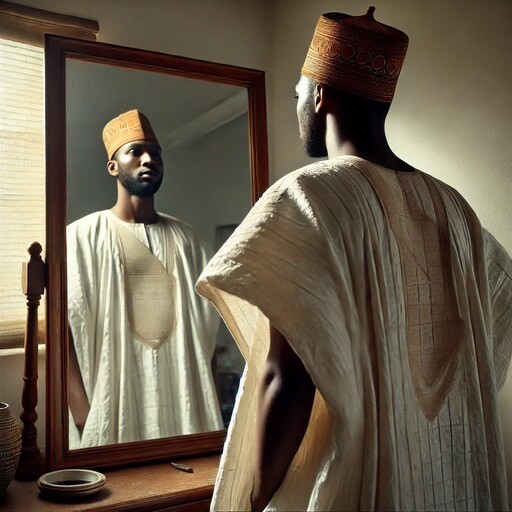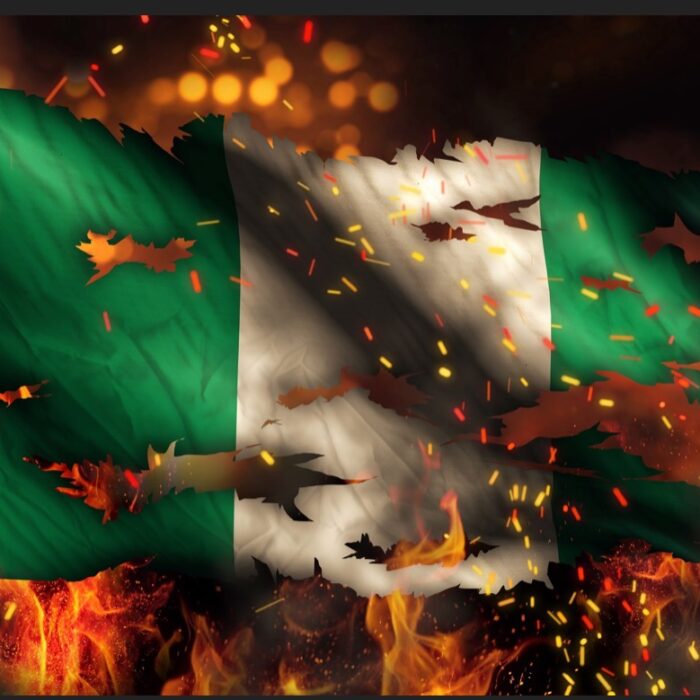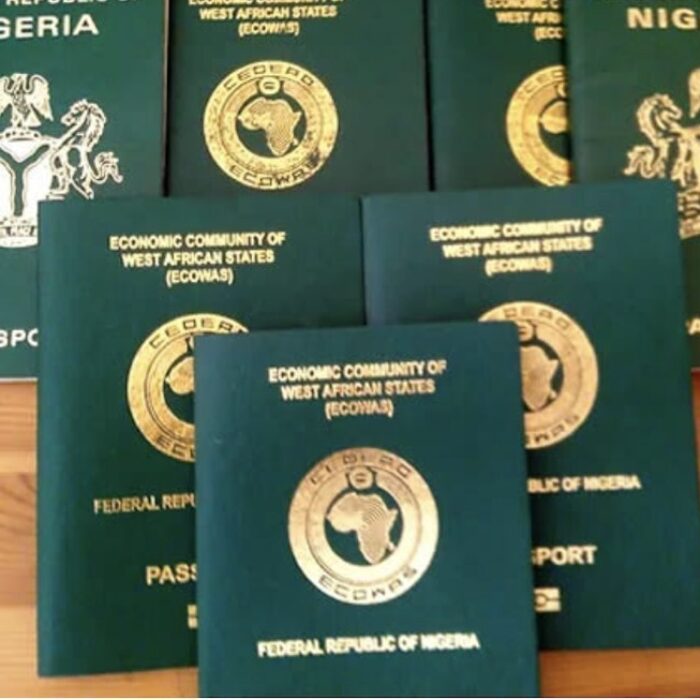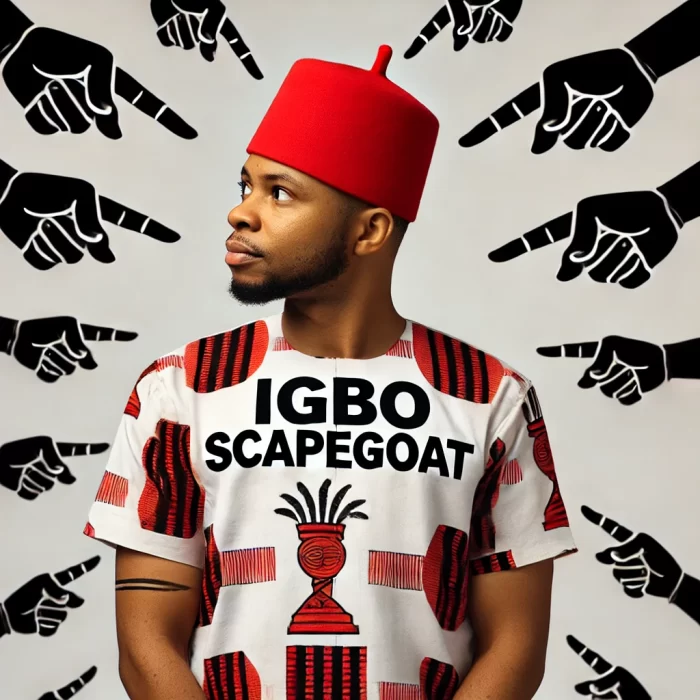By Nnaoke Ufere, PhD
Ask any Nigerian or outsider about the root causes of Nigeria’s challenges, and the answers are predictable: corruption, poor leadership, tribalism, a broken judiciary, or failing institutions.
Yet these are just labels—social constructs that have no meaning without the people and actions that bring them to life. Corruption, tribalism, and poor leadership do not exist on their own; they are created and sustained by individuals—by us.
Framing these problems as abstractions obscures their root causes and deflects accountability. The Nigerian judiciary itself cannot be corrupt; it is the individuals within it who are corrupt. Similarly, leadership does not fail; it is the individuals in leadership positions who fail. Tribalism is not an independent force; it is the product of individual prejudices, biases, and decisions.
Insecurity is not an abstract concept; it exists because individuals perpetrate it. Banditry and kidnapping occur because people choose to engage in them. By blaming these abstractions, we sidestep addressing the individuals responsible and the cultural norms that allow such behaviors to persist across the nation, especially in our political life.
Leadership Is People
Leadership holds no meaning without the individuals who embody it. Yet, in Nigeria, we often lament “a failure of leadership” without holding specific leaders accountable for betraying their responsibilities. Yet, it is we who choose them to lead us.
Figures like Abacha, Buhari, and Tinubu demonstrate how leadership mirrors the character of those who wield power. As Heraclitus reminded us, a nation’s destiny is shaped by the character of its leader.
Abacha’s regime was defined by repression and rampant looting, Buhari’s by visionless leadership and economic mismanagement, and Tinubu’s tenure so far has been plagued by allegations of incompetence, lack of empathy, and moral decay. In each of these examples, the nation declined, and our people have suffered.
Good leadership demands good people—those who are honest, competent, and morally grounded. Yet, we are a paradoxical people, repeatedly entrusting power to corrupt or incompetent individuals in every election cycle, only to bemoan the predictable failures of leadership that ensue. In doing so, we become complicit.
The truth is brutally simple: the quality of leadership is a direct reflection of the quality of those we choose to entrust with power. If we continue to elevate flawed, self-serving individuals—as we have done consistently for over six decades since independence—then we are doomed to endure their failures. The problem isn’t just them; it’s us. Wake up, people—it’s on us!
To improve leadership, we must begin by choosing better people. This means rejecting those with questionable character, regardless of their wealth, popularity or affiliations, and demanding integrity, competence, and accountability at every level.
However, time and again, we have made disastrous choices, and the consequences are painfully clear. There would be no Buhari, no Tinubu if we had chosen wisely. Every time we point a finger at “bad leadership,” four fingers point back at us. The leaders are a reflection of our decisions—and our failure to demand better.
In 2027, the same transactional politicians will resurface, recycling empty promises to deceive a gullible populace once more. The usual trio—Tinubu (if shamelessness permits), Atiku, and Obi—will again masquerade as Nigeria’s saviors, armed with money, rice, and other inducements to buy loyalty.
But this time, we must rise above their tactics and say, No. We must reject the corrupt cycle and vote for a true leader—someone untouched by the system’s rot, someone whose integrity is unshakable, and whose vision is untainted by personal gain. 2027 is our moment to break free.
Tribalism Is Us
Similarly, we blame “tribalism” as if it is a mysterious force dividing the nation. It exists because people act on ethnic biases, prioritize loyalty to their “tribal soulmates,” and make decisions based on ethnic affiliation rather than merit. Individuals who prioritize tribal loyalty over competence perpetuate mediocrity and disunity.
Imagine where Nigeria could be if leaders had prioritized meritocracy over ethnic favoritism. Instead, tribal considerations by those in positions of authority continue to determine appointments to critical roles, leaving the nation crippled by inefficiency and incompetence.
If Buhari and Tinubu had prioritized merit over tribal, religious and party affiliations in selecting their cabinets and government officials, drawing from the pool of talented Nigerians across all regions, Nigeria’s situation would not be as dire as it is today.
We are the problem—the tribalists who perpetuate division through our votes. Evidence from the 2023 presidential election shows that Yorubas overwhelmingly voted for Tinubu because he is Yoruba. Tinubu won four out of the six states in SW zone, amassing approximately 2.2 million votes, which accounted for 54% of the total votes there.
The Igbos rallied behind Peter Obi because he is Igbo. Obi won all five states in the SE zone, securing about 1.9 million votes, representing 89% of the total votes cast in the region.
And Atiku’s support came largely from the Hausa/Fulani, driven by the same tribal logic. He won five out of the six states in NE zone, obtaining around 1.7 million votes, which constituted 56% of the total votes there.
This is the ugly truth of our politics: merit is sidelined, and tribe reigns supreme. The real question is, when will we, as voters, rise above this destructive tribalism and choose a president based on competence, vision, and character—not ethnicity? Until then, we will remain prisoners of our own narrow-mindedness, sabotaging our nation’s future.
Even as Tinubu’s failures as president become glaringly undeniable—his policy blunders deepening our suffering, fellow citizens dying of hunger, and nosebleed inflation rendering basic necessities unattainable—many Yoruba elites stubbornly stand by him. Why? Not because of his competence, vision, or sound decision-making—qualities he clearly lacks—but simply because he is their tribesman. Of course, they will never admit this uncomfortable truth.
This blind loyalty to tribe, even at the expense of national survival, is a betrayal of reason and conscience. Until we reject figures like Tinubu and demand leaders of integrity, intelligence, and competence, no matter their tribe, tribalism will remain our crutch, our excuse, and the shield behind which the real culprits thrive unchallenged.
Corruption Is a Personal Choice
Corruption is not an institution or an external force—it is a behavior enacted by people, us. People choose to take bribes, embezzle funds, or abuse and misuse power. Corruption thrives not because it is inevitable, but because we tolerate, accept, and normalize it.
When we justify unethical behavior or actively participate in it, we give corruption a foothold. When we celebrate looters as successful individuals, we become complicit in perpetuating a culture that rewards dishonesty and undermines integrity.
The fight against corruption is not about battling an abstract enemy; it is about changing our own behaviors. It requires naming and holding accountable those who perpetuate corruption and fostering a culture that values integrity and accountability. Anything less addresses symptoms, not root causes – us.
The Judiciary is Us
We often say, “the judiciary is corrupt,” but this is misleading. The judiciary itself cannot take bribes, delay trials, or sell justice—these actions are carried out by individuals: justices, judges, lawyers, prosecutors, police officers, and court clerks. These people, not the institution, are the problem. We are both the perpetrators and the victims.
To address injustice, we must stop blaming an abstract “judiciary” and hold the responsible individuals accountable. Corruption persists when Chief Justices act dishonestly, when judges prioritize personal gain, when police fabricate evidence or change it in exchange for money, and when cases languish for years without resolution. These are the actions of people, not a faceless judicial system.
When legal luminaries like Afe Babalola weaponize the judicial process to stifle dissent under the guise of defamation, as seen in his obscene case against Dele Farotimi, it becomes our collective duty to expose and resist such abuse.
This isn’t just about Babalola—it’s about the powerful forces behind him, using him as a conduit to intimidate and silence those like Farotimi who dare to speak truth to power.
The report that Peter Obi embarked on an emissary to beg Chief Babalola is nothing short of disgraceful—a capitulation that undermines the courage and integrity needed to confront such acts of oppression. In moments like these, silence is complicity, and appeasement is betrayal. Accountability starts with courageously naming and exposing those who misuse their positions, as Farotimi has done.
We must not let the threat of defamation laws deter us from presenting evidence of wrongdoing. Transparency and accountability are indispensable for reforming the judiciary and rebuilding public trust. Only by directly confronting corrupt actors can we begin to dismantle the entrenched culture of impunity that continues to erode justice and integrity.
The Path Forward
At the core of Nigeria’s challenges is the human element: me, you, us. Systems and institutions are created, sustained, or destroyed by people. Great leadership, a functional judiciary or thriving economy does not happen by chance; they require individuals of competence, integrity, and commitment. Poverty, unemployment, and insecurity persist because of the actions—or inactions of people—that allow them to.
To solve these problems, we must stop hiding behind abstractions and focus on the real issue—ourselves. This requires rejecting dishonest, incompetent leaders, demanding accountability, and overhauling the cultural values that perpetuate corruption and tribalism.
Leadership must be redefined as a duty to serve with integrity and vision, not a license to exploit. We must choose leaders based on merit—integrity, competence, vision, and commitment to the common good—not on wealth, social status, connections, or ethnic and religious ties. Change begins with us, the people, and we must embrace our responsibility to reject mediocrity and corruption as unacceptable norms.
Nigeria’s challenges are not insurmountable—they are human-made and require human solutions. By confronting the attitudes and systems that sustain them, we can rebuild our institutions and forge a national identity grounded in integrity, merit, and a shared purpose. A better future is not just an aspiration; it is a necessity—and it begins with us.





